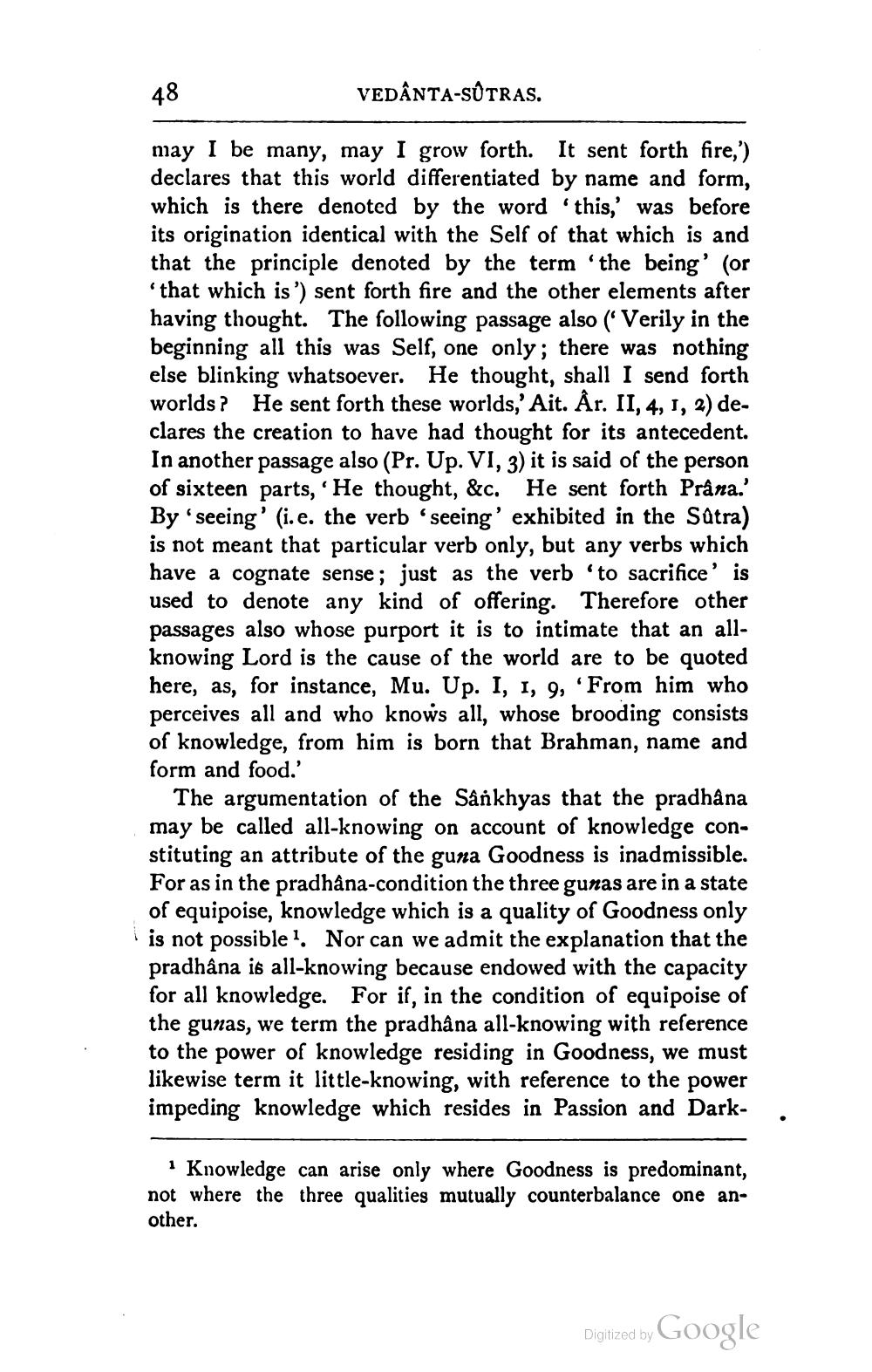________________
48
VEDÂNTA-SÛTRAS.
may I be many, may I grow forth. It sent forth fire,') declares that this world differentiated by name and form, which is there denoted by the word 'this,' was before its origination identical with the Self of that which is and that the principle denoted by the term 'the being' (or
that which is ') sent forth fire and the other elements after having thought. The following passage also (Verily in the beginning all this was Self, one only; there was nothing else blinking whatsoever. He thought, shall I send forth worlds? He sent forth these worlds,'Ait. År. II, 4, 1, 2) declares the creation to have had thought for its antecedent. In another passage also (Pr. Up. VI, 3) it is said of the person of sixteen parts, 'He thought, &c. He sent forth Prâna.' By 'seeing' (i.e. the verb seeing' exhibited in the Satra) is not meant that particular verb only, but any verbs which have a cognate sense; just as the verb 'to sacrifice' is used to denote any kind of offering. Therefore other passages also whose purport it is to intimate that an allknowing Lord is the cause of the world are to be quoted here, as, for instance, Mu. Up. I, I, 9, 'From him who perceives all and who knows all, whose brooding consists of knowledge, from him is born that Brahman, name and form and food.'
The argumentation of the Sankhyas that the pradhana may be called all-knowing on account of knowledge constituting an attribute of the guna Goodness is inadmissible. For as in the pradhana-condition the three gunas are in a state of equipoise, knowledge which is a quality of Goodness only is not possible. Nor can we admit the explanation that the pradhana is all-knowing because endowed with the capacity for all knowledge. For if, in the condition of equipoise of the gunas, we term the pradhâna all-knowing with reference to the power of knowledge residing in Goodness, we must likewise term it little-knowing, with reference to the power impeding knowledge which resides in Passion and Dark
Knowledge can arise only where Goodness is predominant, not where the three qualities mutually counterbalance one another.
Digitized by
Digized by Google




